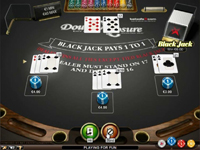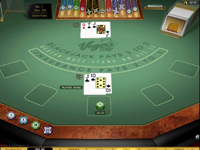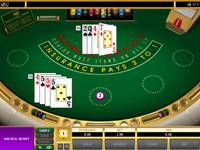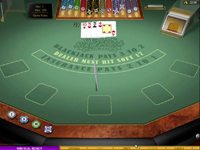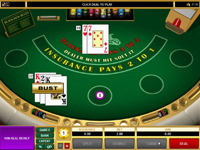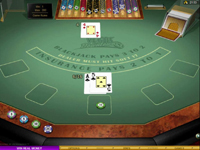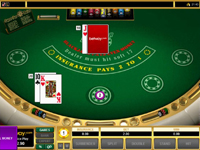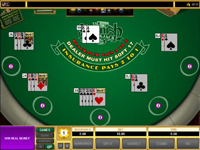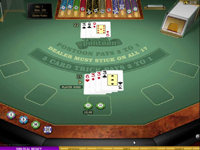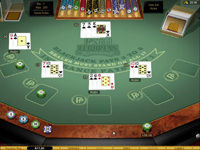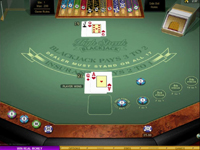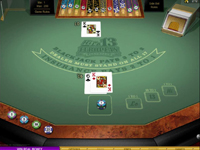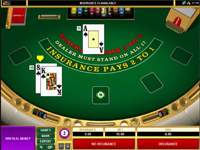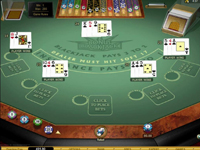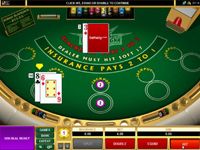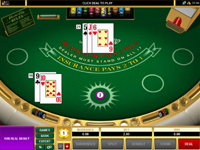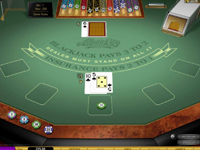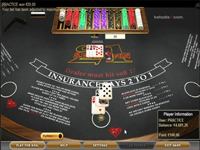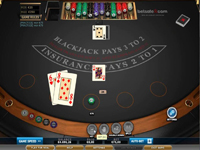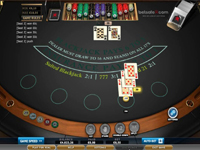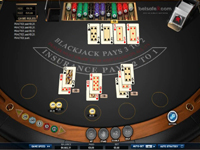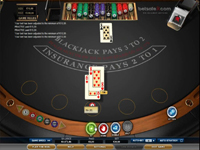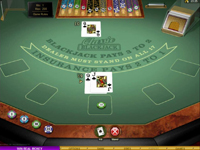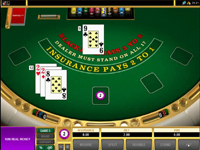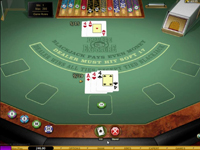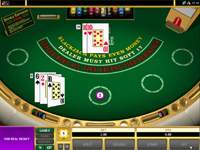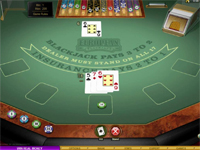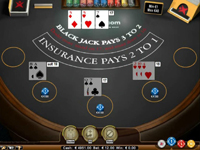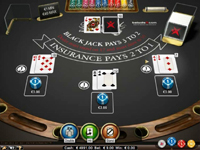Blackjack Terms
Compared to games such as craps and roulette, blackjack is fairly easy to understand and you don’t have to know a lot of terms from scratch. Hit, stay, split and double up will take you a long way, especially if you also understand the terms insurance and even money.
Once you’ve started to become more comfortable at the blackjack table there are however a fairly large amount of terms that can be practical to know, especially if you want to understand what other people are discussing at the table. We have therefore compiled a list of both common and not so common blackjack terms to start you off.
Enjoy!
Basic strategy
Basic blackjack strategy is based on math and will help you determine a suitable course of action in any given situation at the blackjack table. It will however not take into account the current composition of the shoe (see card counting).
Blackjack
Blackjack is not only the name of the game, it is also the name of a hand consisting of an ace + any ten point card. A blackjack is the best possible hand in the game blackjack. In most casinos, a blackjack will pay 1,5 times your bet.
Bust
If a hand reaches 22 points or above, the hand is bust. The term can also refer to the player, in sentences such as "he took a third card and went bust".
Card counting:
The term card counting refers to various methods where a player keeps track on the cards that have been removed from the shoe. By knowing which cards are not longer in play, it is possible to make more accurate predictions in blackjack and adjust your strategy accordingly. Many land casinos will throw you out if they believe you are counting cards; at least if you are making a significant profit. You can find more information in our article about blackjack strategy.
To counteract card counting, many land casinos have exchanged their "shoes" for automatic shuffle machines. Discarded cards are returned to the machine right away in shuffled back into the mix, making card counting a pointless venture.
In online casinos, the next card is normally determined by a random number generator, but there are live casinos online where one or several real decks are used.
Double down / Doubling down
If you want to double down, you place a second bet next to your original bet. The second bet should be of the same size as the original bet, although some casinos will allow you to make a smaller bet if you don’t have enough money to place a full bet. You can only double down on a two-card hand, not later. Doubling down after splitting is allowed, since that count as two new two-card hands.
Once you’ve doubled down, you will receive one more card on that hand. Regardless of how far from 21 you get, you will not get any more cards on that hand.
Players typically double down when they have really good starting hand and the dealer has a poor starting card, e.g. the player has 11 while the dealer has 6.
Hard / Hard hand
A hard hand is a hand without any ace, or a hand with an ace where the ace is worth one point. For more info, see soft hand.
Hit
If you want an additional card, say "hit".
Hole Card
In some casinos, the dealer will start out with two cards – one face up and one face down. The face down card is known as hole card.
House Advantage
This is also known as house edge. In most casino games and for most bets, the house (i.e. the casino) has a statistical advantage over the player. The advantage is expressed as a percentage. The house edge is normally calculated in reference to a player that uses optimal strategy. Since most players won’t, the real house edge will be even higher than the theoretical one.
In blackjack, card counting can be used to decrease the house advantage.
Insurance and Even money
If the dealer’s face up card is an ace, you will be offered to purchase insurance. The price of insurance is 50% of the insured bet. If the dealer gets a blackjack, insurance will be 2:1. You will loose on your original bet, but win on your insurance, which means that you will break even.
If the dealer’s face up card is an ace and you have a blackjack, you will be offered "even money" instead of insurance. If you accept, you will be paid 100% for your blackjack right away instead of the normal 150%. Even money is therefore basically the same thing as insurance.
Push
If the dealer and the player have hands of the same value, the player and the dealer ties and the player neither wins or lose. This is called a push. There are however some casinos that will take your money if your hand isn’t high enough, e.g. you and the dealer both have 17. This naturally gives the casino a much higher edge than normal and is highly detrimental for the player.
Shoe
The special box that holds the deck or decks at the blackjack table is called shoe. When cards are discarded, they are not put back into the shoe. Blackjack tables with shoes are therefore popular among card counters.
Today, many casinos are replacing their traditional shoes with automatic shuffling machines to counteract card counters.
Soft / Soft hand
A soft hand is a hand that contains an ace that still counts as 11 points. Hitting a soft hand can never bust your hand, since the value of the ace will change from 11 to 1 if necessary. The opposite of a soft hand is a hard hand, i.e. a hand where the ace already counts as 1 point.
Split
If your first two cards are of the same value, e.g. two nines or two cards worth ten points each, you are allowed to split them. If you wish to split them, you place a new bet of the same size as your original bet next to the second card. The dealer will then separate the two cards from each other, and the hands will be played as two separate hands. It is possible to continue to split as long as you keep receiving cards of the same rank. You are also allowed to double up split hands, if you wish.
Stand / Stay
When you don’t want any more cards for a particular hand, you say stand or stay. It is the opposite of hitting.
Surrender
Some casinos will offer you the option to surrender. When you surrender, you give up your hand and lose 50% of your bet. There are two types of surrender; early surrender and late surrender. During early surrender, you give up your hand before the dealer checks for blackjack. During late surrender, you give up your hand after the dealer checks for blackjack. (Note that in some casinos, the dealer does not check for blackjack and they may have other rules for surrendering a hand.)
Blackjack tournaments
Blackjack tournaments are a fairly new invention. During a blackjack tournament, you are not only competing against the house – you are competing against other players can win additional prices. Land casinos often divide their blackjack tournaments into two parts, since they know that players that have proceeded from part one to part two are likely to stay in the casino and gamble as they wait for part two to commence.
Up Card
The dealer’s exposed card is known as the up card, since it is face up.


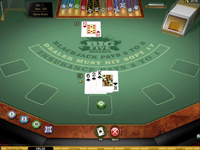
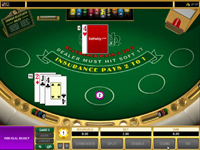
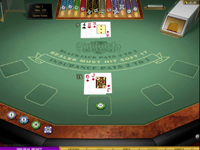
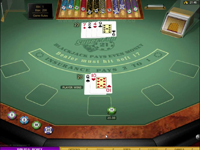
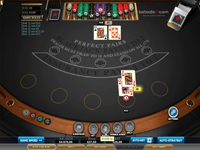
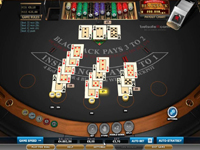
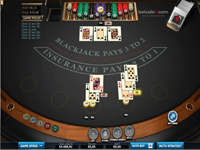
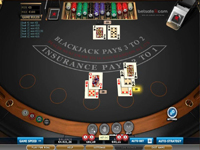
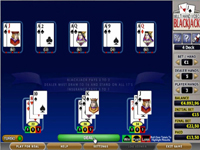
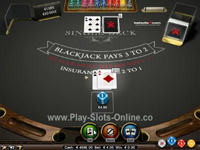
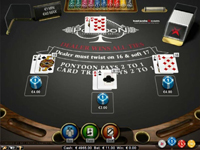
_netent.jpg)
